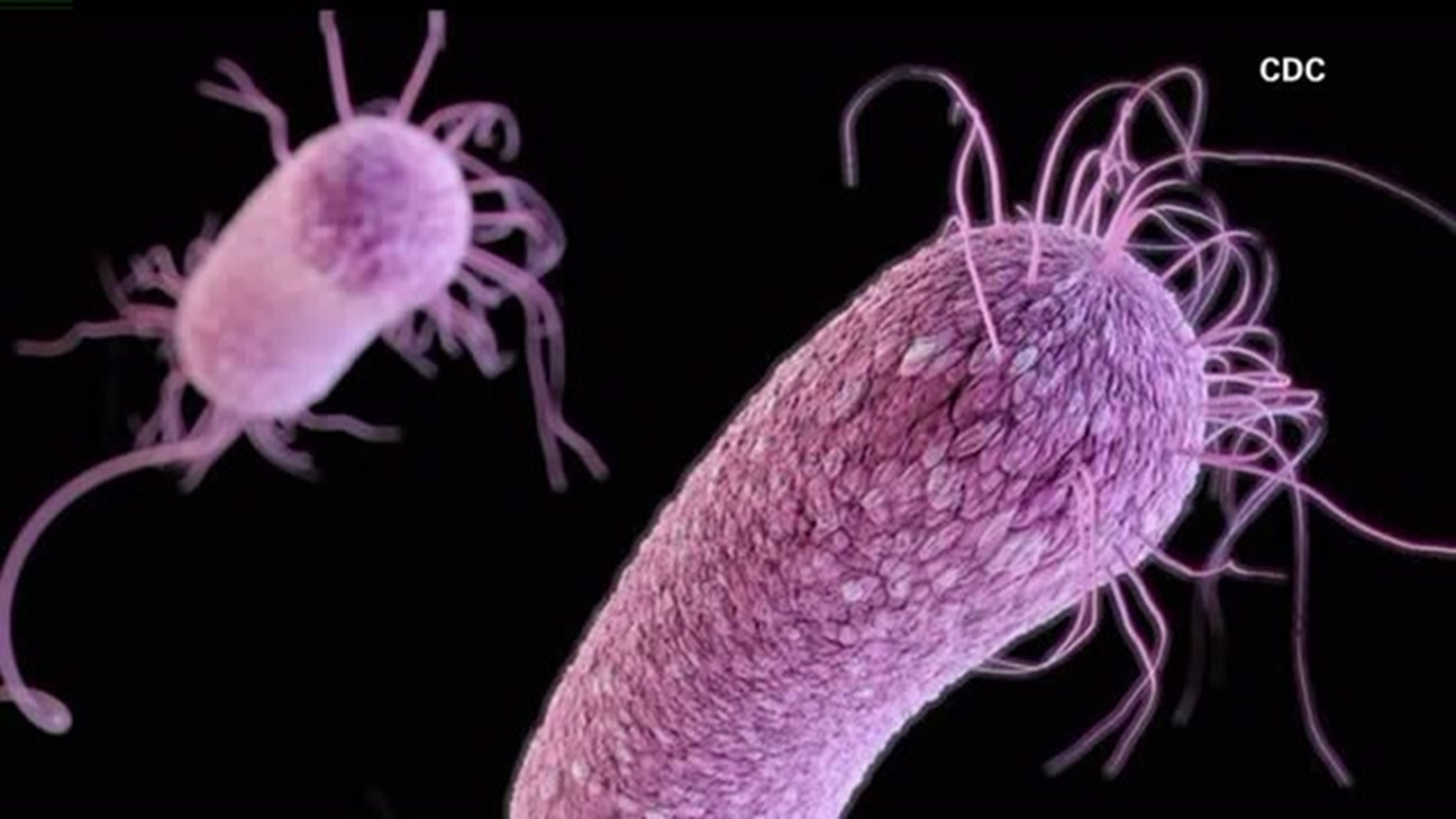HARRISBURG, Pa. -- The 'Superbug' bacteria, never before seen in the United States before recently appearing in a Pennsylvania woman, is so unknown, the Pennsylvania Department of Health says it is still learning how one of its residents contracted the gene.
However, the public is in no imminent danger, according to the Centers for Disease Control and Prevention.
The Department of Health is working with the CDC, as well as the U.S. Department of Defense, in trying to find more information on how a 49-year-old Pennsylvania woman obtained the 'Superbug' gene MCR-1. It is named as a 'Superbug' because it is not treatable by antibiotics.
On Friday, the Department of Defense confirmed to FOX43 the woman had visited a military medical center in Pennsylvania, explaining why they were involved in the investigation. She was showing symptoms of a urinary tract infection, according to the CDC, and her urine sample showed traces of the MCR-1 gene. The sample was taken to Walter Reed Medical Center in Bethesda, Maryland.
Pennsylvania's Department of Health says the CDC is leading the investigation.
"This is something we’re learning about every day thanks to our work with the Centers for Disease Control and Prevention and the U.S. Department of Defense," said Department of Health Press Secretary Wesley Culp. "We are following their guidance on this matter."
The CDC does not believe this to be a public health scare yet, and no quarantines have been issued. They, and the Pa. Department of Health, could interview the woman, along with close friends and family. Her recent travels could be tracked, as well. When asked if these steps had already taken place, Culp would neither confirm nor deny, citing federal privacy laws.
According the CDC, a trip to the military medical center in question could soon be in order, to see if they had any role in the woman contracting the MCR-1 bacteria.
"This development is causing (the CDC) to put an all points bulletin out for people in health care to make sure clinicians are looking for these infections, and testing for these bacteria," said Tom Skinner, spokesperson for the CDC.
After issuing a statement on Thursday calling MCR-1 a "potentially serious problem," Pennsylvania Gov. Tom Wolf was unavailable to answer additional questions on Friday.

